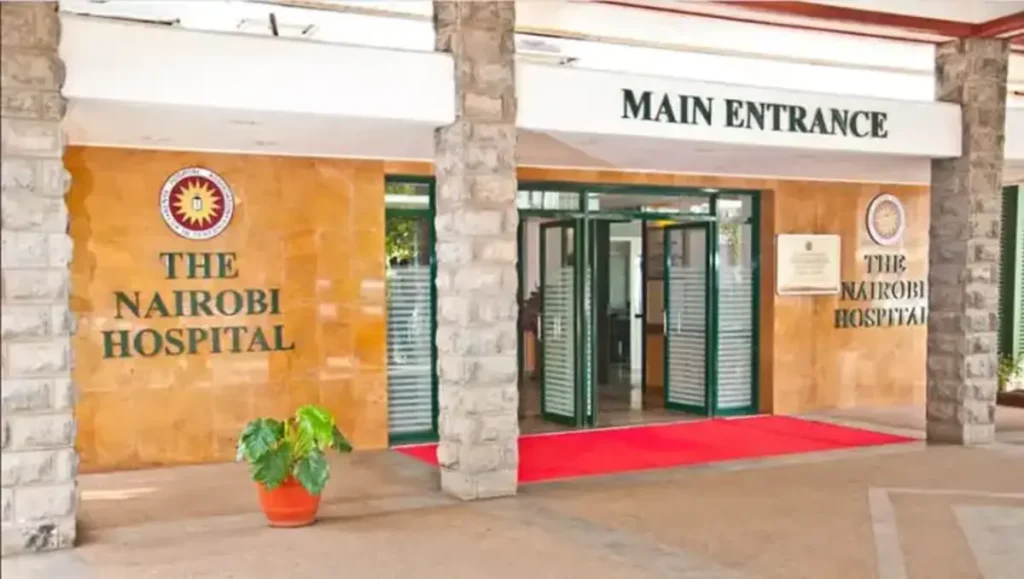The ongoing conflict at Nairobi Hospital has escalated, leading to legal interventions that have halted attempts by the Kenya Hospital Association (KHA) to remove its board of directors. The High Court, under Justice Peter Mulwa, issued a temporary injunction preventing an extraordinary general meeting aimed at discussing the board’s removal due to allegations of mismanagement. This decision follows a series of disputes between KHA members and the hospital’s leadership, which has faced criticism for financial decisions and governance issues.

An entrance Photo of Nairobi Hospital: Courtesy Photo
The KHA, which owns Nairobi Hospital, has expressed dissatisfaction with the board’s performance, citing failures in fiduciary duties and governance. Allegations include improper procurement processes and questionable financial decisions jeopardising the hospital’s assets. Members sought to convene an extraordinary meeting to address these issues and potentially oust the board.
On September 24, 2024, Justice Mulwa ruled that the extraordinary meeting could not proceed until further hearings scheduled for October 8. The court emphasized the urgency of the matter, noting that significant legal questions were raised regarding the board’s conduct and the legitimacy of KHA’s actions. This ruling followed previous court orders that blocked similar meetings initiated by both KHA and the board.
The court’s decision has drawn mixed reactions. Board supporters argue that legal intervention is necessary to maintain stability during a tumultuous period. Dr. Chris Bichage, chairman of the board, has defended their actions against allegations of mismanagement while filing a defamation suit against KHA members for their claims.
Conversely, some KHA members express frustration over what they perceive as judicial overreach in corporate governance matters. Senior counsel Ahmednasir Abdullahi, representing KHA members, criticized the court’s injunction as an abuse of judicial power and called for transparency in addressing governance issues within the hospital.
The ongoing legal battles have significant implications for Nairobi Hospital’s operations and reputation. As one of Kenya’s premier healthcare institutions, any disruption in leadership or governance can affect service delivery and public trust. The hospital’s management faces increasing scrutiny as stakeholders await the outcome of upcoming court proceedings.
The conflict at Nairobi Hospital highlights critical issues surrounding corporate governance in healthcare institutions in Kenya. With court rulings shaping the future of its leadership, all eyes will be on the October hearings to determine whether KHA will succeed in its efforts to replace the current board or if stability will prevail under existing management. The outcome will likely influence not only Nairobi Hospital but also set precedents for governance practices across similar institutions in Kenya.



















